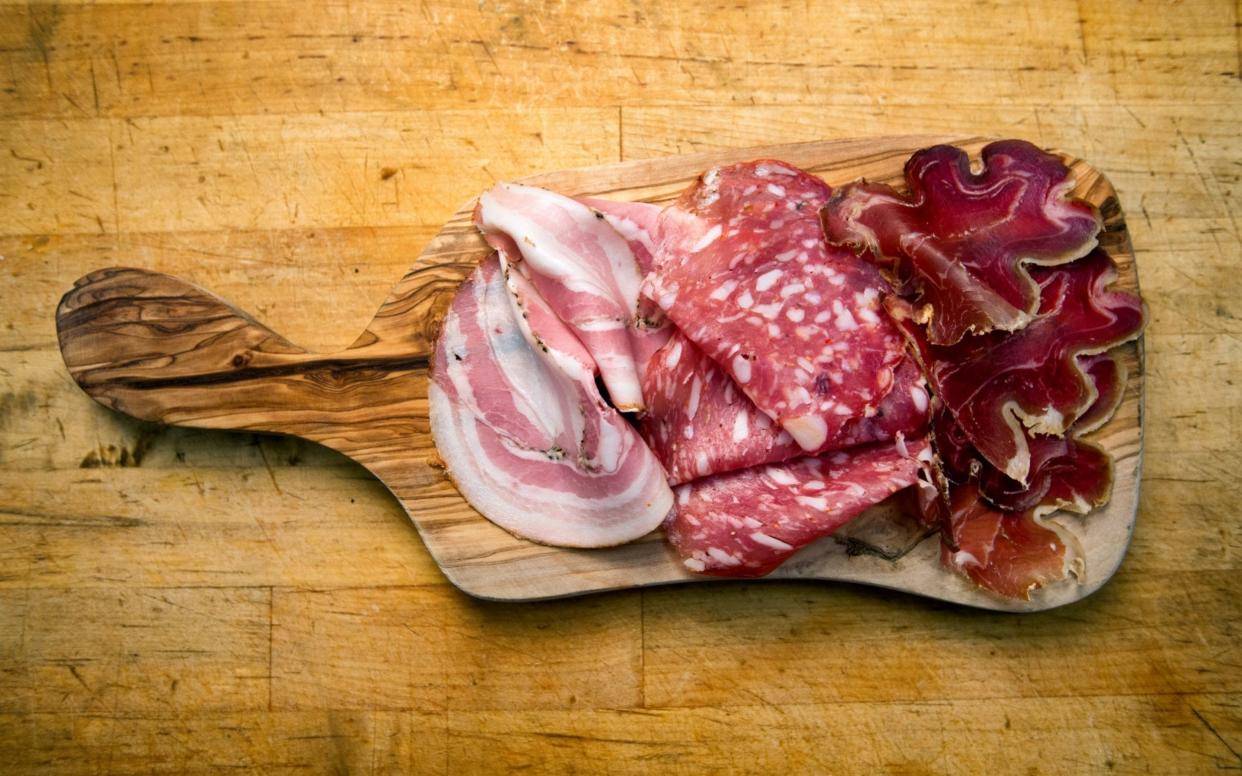French ham could turn grey as parliament debates banning nitrates

There is little more quintessentially French than a baguette with a filling of pink ham and butter.
However, the French may soon have to settle for grey “jambon” if MPs get their way.
Parliamentarians yesterday/THURS tabled a draft bill banning the addition of nitrites and nitrates in industrially produced ham and other meat products.
The additives, which are used to conserve and protect against bacteria, give sliced ham its pink hue. Without them, it tends to look pale and greyish.
But the additives can produce nitrosamines, which are considered “probably carcinogenic” by the World Health Organisation’s International Agency for Research on Cancer, IARC, which believes they promote colon and stomach cancer. IARC considers processed meats in general “carcinogenic”.
Centrist MP Richard Ramos, the author of the bill, said: “After a serious parliamentary investigation, everyone recognises that these products kill. If this proposal does not pass, as an elected official, I wonder what use I am.”
If passed in its current form, the legislation plans to enforce a ban on nitrites in raw ham - such as Parma or Bayonne ham - from 2023. For cooked ham but also andouillette, boudin, terrine or rillettes, the ban would apply from 2025 to give time to producers to ensure health safety.
It could also oblige industrial ham to come with a health warning on the packet rather like those for cigarettes.
France would be the first country in Europe to impose such a ban.
Charcuterie producers have long argued that nitrites, particularly in cooked ham, are essential to avoid botulism, a rare but dangerous illness caused by toxins from a bacteria that attack the body’s nerves. Such products are normally not cooked to above 60 degrees Celsius, insufficient to kill such bacteria.
But Mr Ramos pointed out in an interview with Le Parisien that many artisan charcutiers had already stopped using the additives already, while supermarket chain Super U sells nitrite and nitrate-free ham without health risks.
“If you use good products in good conditions, you don’t need these poisons,” he said.
Other major brands have been working since 2017 on ways to cut nitrates and nitrites from their pork products - which would reduce a product's use-by date from 30 days to about 15.
Axel Kahn, president of the league against cancer, said: “In France, it is estimated that every year between 1,200 and 3,400 deaths by colorectal cancer are down to charcuterie with nitrites. The toll is up to 4,00 if you count stomach cancers.”
“Zero risk doesn’t exist,” countered Mr Vallat of the French Federation for the Charcuterie Industry (FICT). “This is a Franco-French debate. In Germany or Italy, the use of these molecules is compulsory in certain products.”
FICT argues no law should be passed before the release of findings of a study on the safety of nitrites as a food preservative by Anses, France’s health safety agency, which is due to report early next year.
However, there have been recent calls in the UK for similar action. In December 2018, a group of leading scientists and a cross-party group of politicians called for nitrites to be removed from processed meats like bacon.
They said producers of Parma ham had not used nitrites for 25 years and more recently Nestle in France and Finnebrogue in the UK had produced mass-market products such as bacon and ham that did not use chemical additives.

